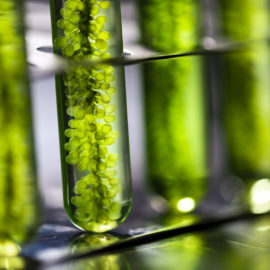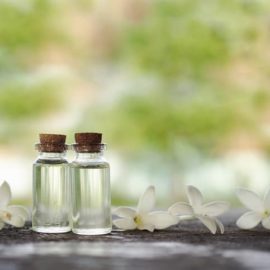As the 33rd IFSCC Congress, known as the ‘Nobel Prize for cosmetics’ approached, at Provital it was a time to reflect on where this year’s research and innovation has taken us. In the field of hair care, there were two key advancements: the use of rosehip extracts for hair protection and the focus on hair strength via an algae extract.
These are particularly relevant to the 2023 IFCSS year’s theme: “rethinking science.” As part of our innovative vision when approaching hair care science, it’s perhaps an indication that Provital’s latest hair care actives present almost the same amount of scientific research as any other skincare active.
This attention to detail and commitment to hair care development is not new for us. See our Kerascalp™ active, which, through a series of new and exhaustive tests, allowed us to discover a new mechanism to target hair miniaturization, becoming the collagen-inducing hair ingredient to target this issue.
This time, we take the opportunity to share our hair care developments in the 33rd IFSCC Congress, confirming our commitment towards innovation in this increasingly important industry.
Content
Algae extract for hair strength
Firstly, our participation in the IFSCC Congress starts by presenting Provital’s research around Palmaria palmata extract. This innovative algae extract increases volume and hair strength, as well as repairs split ends.
This ingredient is best understood within the trend of hair protection against environmental factors and damaging hair products which can affect the hair. As the demand for more natural cosmetics continues growing, this active and natural ingredient is extracted from marine macroalgae for improving hair strength from a holistic perspective.
Through our investigation, we compared a leave-on serum containing the Arginine-enriched Palmaria palmata extract versus a placebo. Then, measurements were taken of hair diameter, strength/resistance of hair strand and effectiveness in preventing hair split ends.
The results showed our Palmaria palmata extract was effective in significantly increasing hair diameters, the rupture force of the hair and 4 times fewer split ends than placebo.
Research results thus confirm Provital has succeeded in developing an algae-based cosmetic active ingredient for hair strength that acts on three fronts: strengthening hair fibers, increasing hair volume and reducing split ends.
Rosehip extract for nourishing
Our second hair care research and development leads us to the use of yet another plant-based innovation: the use of Rosa canina fruit extract (rosehip extract) for an extra nourishing hair care.
In this case, we looked for an ingredient that would provide nourishing for hair that is subjected to certain damaging daily routines and aggressions, such as environmental and mechanical stresses or chemical and physical treatments leading to hair fiber damage.
It’s known that these lead to multiple unwanted effects: from opening hair cuticle scales to changing its structure and composition, ultimately making hair more porous and hydrophilic, and thus less smooth and more tangled with an unhealthy appearance.
Through our research, we evaluated the potential of the Rosa canina fruit extract to protect the lipid surface and prevent the damage caused by chemical factors. Instead, the extract provides nourishment, conditioning and improves hair’s general appearance.
For our research, we applied placebo and rosehip extracts formulations to damp virgin curly tresses previously damaged to remove the lipid fraction. After the treatment, half of these treated tresses were washed with mild shampoo and rinsed with water. In order to measure the potential effects, we measured the contact angle formed by a drop of water on all tresses, and images were taken at different times using a camera and analyzed later. Additionally, a subjective sensory evaluation of the tresses was carried out by volunteers.
Our results were conclusive: damaged tresses reduced their contact angle, which is an indication of a modification in hair hydrophobicity. However, tresses treated with our rosehip extracts recovered contact angle values to those of untreated control tresses. All in all, these results suggest that rosehip extract can restructure hair hydrophobicity after damage.
This innovative extract is thus able to make hair less porous and healthier, as well as protecting the hair fiber from damage even after one mild washing and providing softness and hydration to the hair, which recovers a healthier and more attractive appearance.
Our commitment to advance cosmetic and hair care science is once again proven through two innovations presented among peers in the 33rd IFSCC Congress. Both our microalgae and rosehip extracts stem from our dedication to continuous advancementin the field of hair care, with a focus on developing ever-increasing efficacy that is also sustainable.
No comments yet
There are no comments on this post yet.





Leave a comment